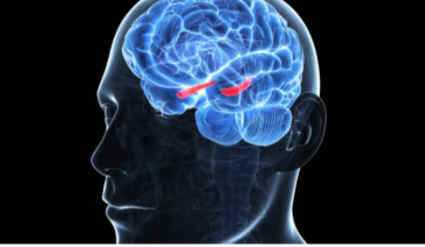Is the Pandemic Affecting Your Brain?
March 24, 2022
It has been two years since the world was first impacted by Covid 19. On March 13th, 2020, the world went into lockdown. Due to isolation and unemployment, many people are still suffering mentally and experiencing long-term effects.
The effects on the mind and body from living in a Covid world are now prevailing. Although different for everyone, symptoms of Covid can vary. Short-term effects could range from anything from fevers, sore throats, and headaches to insomnia. The long-term effects are more serious and can result in breathing problems, memory loss, and joint pain.
Those who have now recovered from the sickness report forgetting things quicker and having trouble concentrating. Mood swings, depression, and changes in smell and taste are also reported as an aftermath of Covid. According to the CDC, “these post-COVID conditions may also be known as long COVID, long-haul COVID, post-acute COVID-19, long-term effects of COVID, or chronic COVID.”
As reported by the Americans with Disabilities Act July 21, 2021, if long-Covid limits one or more major life activities you can be considered disabled. Any inability from not being to care for yourself to having trouble breathing can be qualified as a disability. Since December 2019, 236 million people have been diagnosed with Covid, and 6 months after “more than half of the millions of people who have been diagnosed with COVID-19 worldwide since December 2019 will experience post-COVID symptoms.” Symptoms can be present in adults and children, although less common in kids and adolescents.
Although symptoms are present in recovered Covid patients, there are also post effects in those who were never infected. Scientists believe those who have never had Covid are also experiencing fatigue and lack of focus due to the lockdown. According to the CDC, “Pandemic brain” is a term to describe these post effects that result from the disruption to people’s daily routines.  Daily habits and actions that were once part of a normal day became alienated during Covid times. Dr. Emma Yhnell states that this sudden change and lack of regularity “influences the biology of our brains – and generally we can cope with a certain amount of uncertainty but the longer we have it, generally the worse it is for our brain.”
Daily habits and actions that were once part of a normal day became alienated during Covid times. Dr. Emma Yhnell states that this sudden change and lack of regularity “influences the biology of our brains – and generally we can cope with a certain amount of uncertainty but the longer we have it, generally the worse it is for our brain.”
In an attempt to stay healthy, families and friends were distant. The new worldwide fear of getting sick changed the way people entertained themselves and who they were surrounded by. This endeavor at safety caused people to report feeling fatigued, anxious, and uncertain in daily decisions. Overall, it was a stressful time that put family and friends to the test.
Another possible reason for pandemic fear could be due to growing anxiety caused by the news. With no other options of entertainment, most of the world was glued to the tv watching the news for the latest updates. Life was on hold, people weren’t working, and kids were not going to school. This heavily impacted people’s memory and focus. Scientists are now looking into this phenomenon deeper. It’s a possibility that these long-term effects are not caused by the sickness, but because of the anxiety associated with it.
 Along with the increasing safety measures, anxiety, stress, and depression increased along with the new adaptations, “More than 42% of people surveyed by the US Census Bureau in December reported symptoms of anxiety or depression in December, an increase from 11% the previous year.” Increasing rates of anxiety can have similar effects on the brain similar to Covid.
Along with the increasing safety measures, anxiety, stress, and depression increased along with the new adaptations, “More than 42% of people surveyed by the US Census Bureau in December reported symptoms of anxiety or depression in December, an increase from 11% the previous year.” Increasing rates of anxiety can have similar effects on the brain similar to Covid.
Chronic stress and anxiety can impair the functioning of the hippocampus, the part of the brain responsible for learning and memory. Long-term effects could include memory loss, fatigue, trouble concentrating, and irritability. Almost identical to long-term Covid symptoms, it is hard for scientists to differentiate whether these post symptoms are due to Covid or chronic stress.













